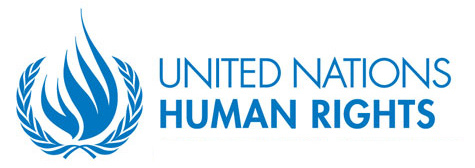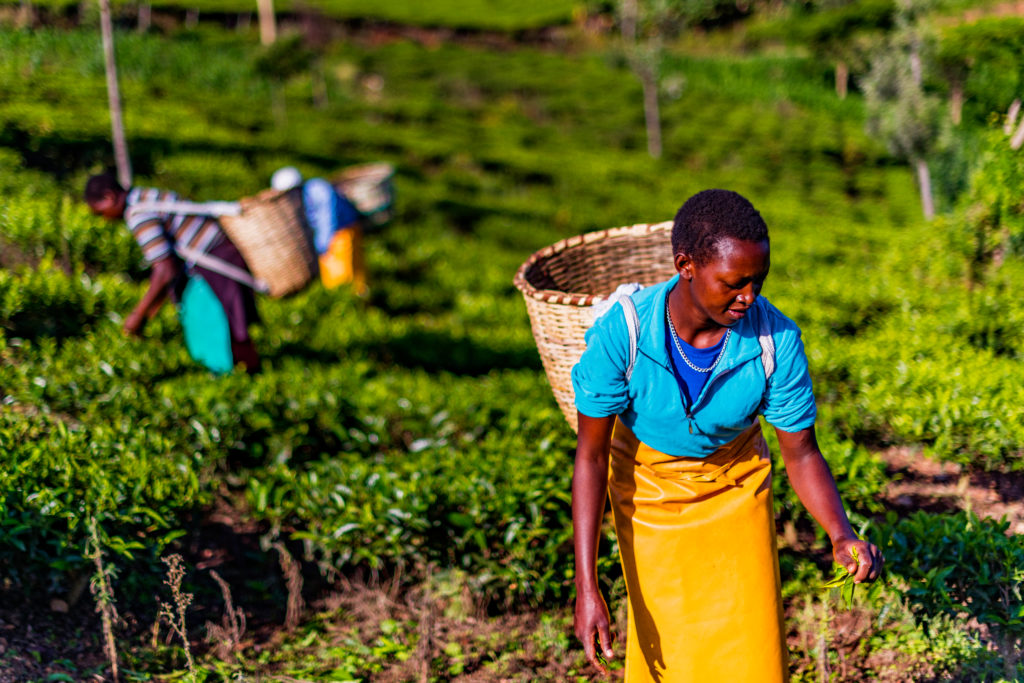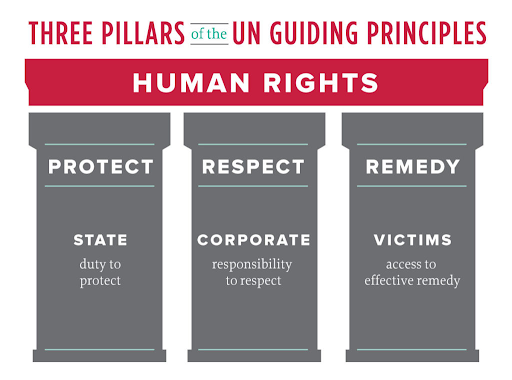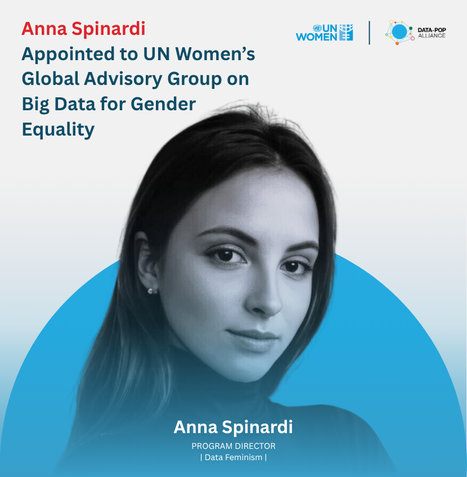DISCUSSION PIECE
Although relatively new, the discourse around Business and Human Rights (BHR) has become increasingly relevant in recent years. This is especially true due to the increasing amount of Foreign Direct Investment (FDI) into African countries, as well as the continued march of globalization. According to the United Nations Conference on Trade and Development’s (UNTAD) World Investment Report 2022, Foreign Direct Investment (FDI) to African countries in 2021 was $83 billion. This penetration and growth of foreign investors in most parts of Southern Africa have been directed towards utilizing the abundant natural resources possessed by the region. According to the World Bank, agriculture was so significant to economic growth that in 2018, “4% of global gross domestic product (GDP)” was derived from agriculture. Also, the World Bank reported that more than 25% of the least developing countries’ (LDCs) GDP was derived from agriculture. In terms of the agricultural workforce, though women represent 43%, they own “less than 30% of land” and have insecure land rights (FAO, 2022). According to the Food and Agriculture Organization of the United Nations, in developing economies, production could increase by 20% to 30% if women were to be given the same access to agricultural resources as men.
Unfortunately, these inequities continue to exist, within agribusiness value chains, not only in Africa but also globally. Women are involved in almost all the stages of the supply chain, including “planting, cultivating, harvesting, processing, logistics, and sales” (International Finance Corporation, 2022). Such roles, though vital, often remain invisible. Consequently, human rights violations by corporate actors against women often go unseen and unreported. Indeed, as ActionAid (2020) asserts, the adverse human rights implications stemming from corporate activities are by no means gender neutral. Considering the fact that women continue to experience various forms of discrimination and violence, often due to discriminatory social norms, patriarchal power structures and gender stereotypes, adding a gender-sensitive perspective to business and human rights frameworks is necessary to mitigate these abuses.
Corporate Accountability and Due Diligence in Business and Human Rights (BHR) Trust
The relationship between business and human rights exists to ensure a commitment to building sustainable and mutually beneficial relationships with those who are impacted by business activities. As a way of demonstrating this commitment, businesses must incorporate corporate accountability in their operations. In turn, corporate accountability requires companies to comply with human rights due diligence processes. Accountability entails a human rights-based approach that aims at establishing accountability mechanisms between duty bearers and rights holders, through codes of conduct and monitoring.
Human rights due diligence is a complementary process that companies should undertake to identify, prevent, mitigate and account for their impacts on human rights (National Action Plans on Business and Human Rights Toolkit, 2017). The process also involves the identification and assessment of both actual and potential adverse human rights impacts activities on rights holders and integrating human rights findings across internal processes (National Action Plans on Business and Human Rights Toolkit).
According to the OECD-FAO Guidance for Responsible Agricultural Supply Chains (OECD-FAO Guidance), supply chain due diligence is essential in enabling companies “to identify, prevent and mitigate risks in the agricultural sector by developing and implementing actions to respond to these adverse impacts.” When business enterprises consciously adopt a gender-sensitive perspective into their agribusiness value chain due diligence, they can proactively and systematically conduct risk management without undermining gender equality (OECD/FAO, 2016), thereby ensuring companies’ contribution to achieving Sustainable Development Goal 5: Achieving gender equality and empowering all women and girls.
(Slow) Steps in the Right Direction
“In 2011, the UN Human Rights Council unanimously endorsed the UN Guiding Principles on Business and Human Rights, the first international instrument to assign companies the responsibility to respect human rights.”

Even though there are many that argue that international human rights treaties have fallen short of imposing legally binding obligations onto corporate enterprises, this has arguably been because international human rights duties are traditionally imposed on States, not corporations. However, some steps have been taken by the United Nations to directly regulate corporations. The UN’s engagement on issues of business and human rights has gone through four broad phases since the 1970s. One of these phases ran from 2005 to 2011, which was marked by principled pragmatism that involved the development of the United Nations Guiding Principles on Business and Human Rights (UNGPs). These principles were unanimously endorsed by the UN Human Rights Council in June 2011 and were the first international instruments to specifically assign business enterprises the responsibility to respect and protect human rights (Business for Social Responsibility). The UNGPs have also been endorsed by other international bodies, including the International Labor Organization (ILO), the European Union (EU), the Association of Southeast Asian Nations (ASEAN), and the African Union (AU).
The Guiding Principles encompass the State’s duty to protect human rights against violations perpetrated by corporations. They outline steps States must take to prevent, investigate, punish and redress these abuses (UNGP Principle 1). The UNGP goes even further, setting out expectations of companies, including extraterritorial laws (UNGP Principle 2). They proceed to recommend States create an environment conducive to business respect for human rights (UNGP Principle 3). They also stipulate that States should ensure that there is policy coherence at domestic and international levels (UNGP Principle 4). Lastly, the UNGP makes provisions for access to effective remedies for those whose rights have been infringed by corporate enterprises. This is done by outlining various redress mechanisms, which is part of the “remedy” pillar (one of three, see image below). These include State-based judicial mechanisms, State-based non-judicial mechanisms and non-State-based grievance mechanisms (Principles 8-10). Furthermore, Principle 17 specifies the need for business enterprises to conduct due diligence in their operations.
On the global level, specifically regarding gender-sensitive policies in the BHR and due diligence, some initiatives have been leveraged. Firstly, a huge step was taken by the Gender Dimensions of the Guiding Principles on Business and Human Rights, which was launched by the UNGP Working Group in 2017. The main goal was to incorporate gender-sensitivity into the UNGPs by encouraging respective stakeholders to adopt a gendered perspective in implementing the principles and developing practical solutions. The UNGP Working Group thought it wise to include the gender lens, bearing in mind that the adverse effects of business activities disproportionately impact women and girls. Additionally, women and girls face barriers in their quest to seek effective remedies in the face of mistreatment. In addition to the launching of the gender dimensions of the UNGPs, in June 2019, the Working Group also presented a report to the Human Rights Council (A/HRC/41/43). The report stipulates guidance to States and business on integrating a gender perspective during the implementation of the UNGPs.
Another initiative is the Ethical Trading Initiative (ETI)’s Gender Data Initiative which was adopted to support corporate enterprises to collect more and better gender-disaggregated supply chain data, as it is a fundamental aspect of the risk chain assessments and monitoring process. Building on the Business for Social Responsibility (BSR) Gender Data and Impact Tool, the Gender Data Initiative provides businesses with a format that is more accessible in identifying indicators to conduct Gender-Responsive Due Diligence (GRDD). GRDD is premised on the notion that human rights violations are not gender-neutral and, therefore, a homogenous response would not be equitable or sufficient (Gender-Responsive Due Diligence, 2021). The initiative encompasses a holistic approach to tackling human rights risks within the global supply chain. It also ensures the application of a gender lens in each due diligence process and urges companies to support gender equality. By recognizing the specific needs of different genders and analyzing the ways in which businesses may address gender-based inequalities, the guide effectively advocates for the mitigation of women’s rights violations.
Although these initiatives have significantly highlighted the gendered aspects of due diligence in the business and human rights discourse, the challenges women face on the ground are vast, and “on paper” solutions are not enough to meet these challenges.
Why Gender-Sensitive Due Diligence?: Experiences and Challenges of Women in the Agribusiness Value Chain
Owing to the fact that women are not homogenous, it is essential to consider that the experiences that they face within the agribusiness sector affect them differently. For this reason, attempts at achieving gender-sensitive due diligence and corporate accountability should consider such diverse factors and experiences.
As declared by the Universal Declaration of Human Rights, human rights are inherent to all human beings, which of course also includes women. However, women continue to encounter inequality and discrimination in multiple spheres of their lives, including the agribusiness value chain sector. Most of the challenges faced by women in this sector are related to human rights violations. Women are usually disproportionately affected by adverse business practices and do not enjoy the same economic opportunities as men. Most of these barriers are attributed to deeply entrenched gender norms and expectations prescribed by society. Such challenges continue to relegate them to a lower status within the agribusiness value sector, despite their immense contributions. One of the main challenges is vulnerability to gender-based violence and sexual harassment, which are rampant. Another challenge that women face is large corporations taking over productive resources, such as land. These actions have immense implications for women, especially considering that they lack ownership or control over land. Thus, female-led smallholder enterprises lack the ability to compete with big enterprises. In addition, in most instances, women are paid lower wages than men. Compounding these challenges, women also encounter barriers in their quest to access effective remedies when their rights have been violated.
BSR Gender Data Impact Framework Report
The significance of data in today’s world is undeniable. In recent years, data has become a resource and, in some cases, as powerful as other vital resources, especially as it can drive advocacy, accountability and progress. In the context of the agribusiness value chain, data is fundamental to effectively conducting human rights due diligence and risk assessments. The lack of gender-disaggregated data is one of the fundamental factors impeding true equality for women. For instance, as noted by the investor-led Workforce Disclosure Initiative (WDI), only a few companies collect and monitor gender-disaggregated data in their supply chains. For instance, in their 2018 survey, only 17% of the companies surveyed indicated that they collect these types of data. This was also echoed in the 2017 Economist report which noted that only 28% of the companies surveyed addressed gender equality among their suppliers and only a few of the companies required their suppliers to provide gender-disaggregated data. The absence of gender-aggregated data will mean that companies are unable to effectively make assessments on gender-related risks and adverse impacts on women, and in consequence, businesses will be unsuccessful in addressing and preventing risks to workers and mitigating harm in the course of their operations. Additionally, the absence of gender-disaggregated within the agribusiness value chain will lead to under-prioritization and representation of women in policy formulation and alienation in decision-making processes.
On the other side of the coin, the gender gaps do not only affect the rights holders in this case, women— but also, the corporation itself. As pointed out in the BSR Gender Data Impact Framework Report, for businesses to comprehensively assess risks and adverse impacts on women, they need to have knowledge and understanding of women’s issues. Such knowledge will be effective in designing and implementing impactful interventions. Indeed, data has been deemed helpful in illustrating, as discussed in the BSR report.
Biased Data
In addition to data gaps, another challenge in engendering due diligence within the agribusiness value chain is biased gender data. As indicated by the BSR report, due to a lack of reliable data, most policies and programs developed do not take into consideration the various barriers faced by women, or even the number of affected women, which has also been exacerbated by gender-biased collection methodologies. Some companies’ workforce profiles may intentionally or unintentionally systematically discriminate with regards to addressing contractual and structural gender inequalities. For instance, age as a variable could be used against women of reproductive age, as they might eventually ask for maternity leave.
Data2X
Mismanagement and misinterpretation of gender-aggregated data is another challenge to achieving gender-sensitive due diligence in the agribusiness value chain. In most instances, businesses are reported to struggle with what specific gender-disaggregated data to collect or how to interpret it.” Also, suppliers are said to be unclear about the benefits of the data collected and, usually, they do not have systems in place to process the data collected (Ahmed, 2022), making it impossible for the data collected to be used effectively to better the lived experiences of women within the value chain.
The Bottom Line: Conclusions and Recommendations
Based on the shortcomings highlighted in this discussion piece to reduce human rights violations against women in the corporate sector, and specifically within agribusiness, the following recommendations can be made:
- There is a need to collect gender-disaggregated data in order to understand gendered risk assessments
- Biases in gender-disaggregated data should be addressed and reduced
- Businesses and enterprises must receive training on how to collect and leverage gender-disaggregated data to carry out effective due diligence
- Gendered due diligence should explicitly incorporate women’s lived experiences within the agribusiness value chain
- Overall, there is a need to formulate and adopt policies and programs that recognise women’s specific experiences and challenges within the agribusiness value sector
Data2X
Despite the adoption and implementation of various initiatives seeking to include gender-sensitivity into the BHR discourse, such as the Gender Dimensions of the Guiding Principles on the Business and Human Rights, the Gender Data Initiative, the Gender Data and Impact Tool, and Gender-Responsive Due Diligence, more work needs to be done to cater to the needs of women within the agribusiness sector. As highlighted in this discussion piece, doing so continues to be a challenge mainly due to a lack of (disaggregated) data, biases in the data, and mismanagement and misinterpretation of the data. However, this does not mean the complexity and challenging nature of collecting gender-aggregated data within the agribusiness value chain is impossible.
Indeed, in order to mitigate gender biases and the invisibility of women within the agribusiness supply chain, there is a need to make women more visible and make their work count. The recommendations provided above will assist in understanding the root causes of inequalities and discrimination faced by women.
About the author: Priscilla Thindwa is a Research and Content Intern with Data-Pop Alliance’s Data Feminism Program. She is from Malawi.
References
- ActionAid. (2020, March). We mean business: protecting women’s rights in global supply chains. https://actionaid.nl/wp-content/uploads/2020/02/We-Mean-Business-Protecting-Womens-Rights-in-Global-Supply-Chains_ActionAid_March-2020.pdf
- Ahmed, H. (2022, March 10). It’s time to collect more and better gender-disaggregated supply chain data | Ethical Trading Initiative. Retrieved October 11, 2022, from https://www.ethicaltrade.org/blog/its-time-to-collect-more-and-better-gender-disaggregated-supply-chain-data
- Birajja, M. (2019). Making Women Workers Count: A Framework for Conducting Gender-Responsive Due Diligence in Supply Chains. https://www.bsr.org/reports/BSR_Gender_Data_Impact_Framework_Report.pdf
- Borders, P. W. (2022, June 9). Grassroots activists and tea workers in Malawi band together for strong communities. Photographers Without Borders. Retrieved October 11, 2022, from https://www.photographerswithoutborders.org/online-magazine/chipembere-community-ngo
- BSR. 10 Human Rights Priorities for the Food, Beverage, and Agriculture Sector.Retrieved October 11, 2022, from https://www.bsr.org/en/our-insights/primers/10-human-rights-priorities-for-food-beverage-and-agriculture-sector
- Data2X. (2021, May 12). What is gender data? Retrieved October 11, 2022, from https://data2x.org/what-is-gender-data/
- Deva, S. (2019). Gender Dimensions of the Guiding Principles on Business and Human Rights. Report of the UN Working Group on Business and Human Rights, A/HRC/41/43 (OHCHR and UNDP, 2019). https://media.business-humanrights.org/media/documents/files/documents/A_HRC_41_43.pdf
- Ethical Trading Initiative. (n.d.). Gender data initiative: Why is gender-disaggregated supply chain data important? Retrieved October 11, 2022, from https://www.ethicaltrade.org/issues/gender-equity/gender-data-initiative
- Food and Agriculture Organization of the United Nations. (n.d.). Women in agriculture | Reduce Rural Poverty. Retrieved October 11, 2022, from https://www.fao.org/reduce-rural-poverty/our-work/women-in-agriculture/en/
- Food and Agriculture Organization of the United Nations. (n.d.). Closing the gender gap in agriculture. Retrieved October 11, 2022, from https://www.fao.org/news/story/en/item/52011/icode/
- Gender-Responsive Due Diligence. (2021, March 7). Gender-Responsive Due Diligence – Gender-Responsive Due Diligence. Gender-Responsive Due Diligence. Retrieved October 11, 2022, from https://www.genderduediligence.org/
- Gender-Responsive Due Diligence. (2021a, March 5). Why is Gender-Responsive Due Diligence important? – Gender-Responsive Due Diligence. Gender-Responsive Due Diligence. Retrieved October 11, 2022, from https://www.genderduediligence.org/why-is-gender-responsive-%E2%80%A8due-diligence-important/
- Goodwin, J. (2021, April 15). What Is Corporate Accountability and How Is It Being Enforced? Grow Ensemble. Retrieved October 11, 2022, from https://growensemble.com/corporate-accountability/
- International Finance Corporation. (2022). Women in Agribusiness Value Chains. Retrieved October 11, 2022, from https://www.ifc.org/wps/wcm/connect/Industry_EXT_Content/IFC_External_Corporate_Site
/Agribusiness/Advisory/Women+in+Agribusiness+Value+Chains/#:~:text=Women%20are
%20crucial%20stakeholders%20in,processing%2C%20logistics%2C%20and%20sales. - O’Brien, C.M., Poulsen-Hansen, C.B., Mehra, A., and Blackwell, S. (2017, November). National Action Plans on business and human rights Toolkit 2017 Edition. The Danish Institute for Human Rights and The
- International Corporate Accountability Roundtable. https://globalnaps.org/wp-content/uploads/2018/01/national-action-plans-on-business-and-human-rights-toolkit-2017-edition.pdf
- OECD-FAO. (2021). Integrating a gender perspective into supply chain due diligence. OECD Publishing. https://mneguidelines.oecd.org/Integrating-a-gender-perspective-into-supply-chain-due-diligence.pdf
- OECD/FAO. (2021, May 20). OECD-FAO Guidance for Responsible Agricultural Supply Chains – Helping achieve the SDGs. OECD Publishing. https://www.fao.org/3/ca7970en/ca7970en.pdf
- Ruggie, J. (2011). Guiding Principles on Business and Human Rights: Implementing the United Nations “Protect, Respect and Remedy” Framework. Report of the Special Representative of the Secretary-General on the issue of human rights and transnational corporations and other business enterprises. UN Doc. A/HRC/17/31 (Geneva, Switzerland: United Nations) https://www.ohchr.org/sites/default/files/documents/publications/
guidingprinciplesbusinesshr_en.pdf - Shift. (2022, July 13). UN Guiding Principles 101. Retrieved October 11, 2022, from https://shiftproject.org/resources/ungps101/
- UK Aid. (n.d.). Hidden in plain sight: Why we need more data about women in global value chains. Work and Opportunities for Women (WOW). https://assets.publishing.service.gov.uk/government/uploads/system/uploads
/attachment_data/file/924704/Hidden-in-plain-sight.pdf - UNCTAD. (2022, June 9). Investment flows to Africa reached a record $83 billion in 2021. Retrieved October 11, 2022, from https://unctad.org/news/investment-flows-africa-reached-record-83-billion-2021
- United Nations. (2020, June 29). Sustainable Development Goals (SDG 5). United Nations Western Europe. Retrieved October 11, 2022, from https://unric.org/en/sdg-5/
- World Bank (2022, September 30). Agriculture and Food. Retrieved October 11, 2022, from https://www.worldbank.org/en/topic/agriculture/overview




![M002 - Feature Blog Post [WEB]](https://datapopalliance.org/wp-content/uploads/2025/10/M002-Feature-Blog-Post-WEB.png)






